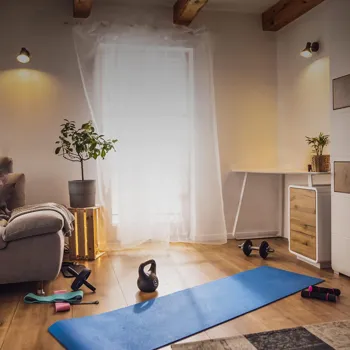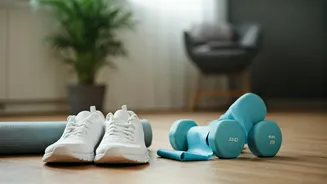Unlock the secrets of sleep! Dive into the science behind resting and recovering – a vital aspect of a healthy life
Namaste readers! In today's fast-paced duniya, sleep often takes a backseat. We burn the
midnight oil for deadlines, scroll endlessly through our phones, and then wonder why we feel like a samosa that's been left out in the sun – all limp and sad.

But sleep, my friends, is not a luxury; it's a fundamental necessity. Think of it as the nightly service your body diligently performs, keeping your internal machinery running smoothly. Without it, things start to go kaput.
So, let's dive into the fascinating science behind sleep and uncover some surprising facts about how our bodies truly rest and recover. After all, a good night's sleep is the bedrock of a healthy and happy life!
Sleep involves stages: light, deep, REM. Each vital for well-being
Many think that sleep is all about switching off for a few hours. But it's more complex than that, bhai! Actually there are different stages of sleep. Your brain cycles through these stages multiple times each night. These stages include light sleep, deep sleep, and REM (Rapid Eye Movement) sleep.
Light sleep is like the gentle warm-up. Here your heartbeat and breathing start to slow down. Deep sleep is where the magic happens; your body repairs tissues, builds bone and muscle, and strengthens your immune system, making sure you stay healthy. REM sleep is where you experience vivid dreams.
It's essential for learning and memory consolidation. Your brain is nearly as active when you are awake. It's like your brain is going to the movies to rehearse for the next day! Each stage plays a crucial role in your overall well-being.
Your body's circadian rhythm controls sleep patterns and functions; light influences it
Have you ever wondered why you feel sleepy around the same time every night? Blame it on your circadian rhythm! This is basically your body's internal 24-hour clock. It regulates your sleep-wake cycle, hormone release, body temperature, and other important functions.

Think of it as your body's personal timekeeper, making sure everything runs on schedule. Light is the most powerful cue that influences your circadian rhythm. When it gets dark, your brain releases melatonin, a hormone that makes you feel sleepy.
Exposure to light, especially from electronic devices, can disrupt this rhythm, making it harder to fall asleep. That’s why it's a good idea to switch off your devices at least an hour before bedtime. Help your internal clock with a consistent sleep-wake schedule, even on weekends.
Pulling all-nighter harms brain; impairs focus, memory, immunity, health
Pulling an all-nighter to cram for an exam might seem like a good idea, but it's really not helping your brain. Sleep deprivation can have a wide range of negative effects on your body and mind.
It impairs cognitive function, making it harder to concentrate, learn, and remember things, reducing your brain power. It also weakens your immune system, making you more susceptible to infections.
Moreover, sleep deprivation increases your risk of developing chronic diseases such as diabetes, heart disease, and obesity. So, prioritizing sleep is not just about feeling rested; it's about protecting your long-term health.
When you sleep, your brain is like a computer defragmenting its hard drive, sorting and storing important information collected from the day.
Power naps boost alertness and mood if timed right
Feeling sluggish in the afternoon? A power nap might be just what you need. Naps can improve alertness, mood, and performance. But the timing and duration are important. Short naps of 20-30 minutes are ideal (power naps). They provide a boost of energy without causing grogginess (sleep inertia).
Longer naps of more than 30 minutes can make you feel tired and disoriented. Avoid napping too late in the day, as it can interfere with your nighttime sleep. Think of a nap as a quick tune-up for your brain, not a complete overhaul.
If you are having sleepless nights, ensure you are resting well after taking a nap. Naps are not meant to make up for sleep deprivation. They merely take the edge off.
Diet impacts sleep quality. Avoid caffeine, alcohol, heavy meals. Choose light snacks, warm milk for better sleep
Your diet plays a significant role in the quality of your sleep. Avoid caffeine and alcohol before bedtime, as they can disrupt your sleep cycle. Alcohol might make you feel sleepy initially, but it can lead to fragmented sleep later in the night. These substances can keep you awake.
Eating a heavy meal close to bedtime can also interfere with sleep. Your body will be busy digesting the food instead of resting and recovering. Opt for light snacks. Consider drinking warm milk, it contains tryptophan, an amino acid that promotes sleep. What you consume affects your sleep.
A nutritious diet and mindful eating habits sets the stage for restful sleep. If in doubt, check with a doctor what food you can eat before sleeping.
Regular exercise benefits physical and mental health, aids sleep
Regular physical activity is beneficial for both your physical and mental health, and it can also improve your sleep. Exercise helps regulate your circadian rhythm and reduces stress and anxiety, both of which can interfere with sleep.

But avoid intense workouts close to bedtime, as they can have a stimulating effect and make it harder to fall asleep. Aim for moderate-intensity exercise earlier in the day. Yoga and stretching promotes relaxation and prepares your body for rest.
So get moving during the day, but wind down before bedtime. Think of exercise as an investment in your sleep bank, building up credit for a good night's rest. Consider doing pranayama or Yoga breathing exercises before sleeping, it calms the mind and body.





















